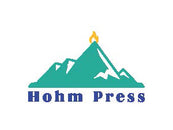The Great Growing Up
Hohm Press
Pages: 240 pages
Size: Paperback, 6 X 9 inches
ISBN: 978-1-935387-18-3
We all face an urgent collective choice: to opt for responsible adulthood over the largely adolescent ways we have been relating to one another and our planet Earth. The author demonstrates that it is not too late to create the future we all say we want for our children and our children’s children—a future that is environmentally sustainable, spiritually fulfilling and socially just.
This book is about a change of thinking that supports a paradigm shift. Anyone willing to genuinely “grow up” can make this necessary choice. Ever-increasing numbers of individuals today are already seeking self-actualization, growing in consciousness, and willing to take on leadership roles in bringing about the first conscious evolution of our species. The Great Growing Up invites the rest of us, who are concerned with humanity’s future, to participate in this new thinking.
The work of growing up is not primarily about political action—it requires no government funding, no special trainings. The work is about a change of mind; we simply begin acting like mature adults. The author shows us how.
John Renesch is not only a smart man, but also a wise one. The Great Growing Up offers a conscious choice for the kind of future we want to create and the role we each want to play in bringing it about. Don’t just read this book—do it! —Alan M. Webber, cofounder, Fast Company magazine.
JOHN RENESCH has been an independent futurist, writer and keynote speaker for decades. He is also a social activist, a humanitarian, and an outspoken advocate of social and organizational transformation. Interviewed by The Wall Street Journal, The Nikkei Financial Times, Business Week, National Public Radio, Forbes, Chief Executive and Industry Week magazines on the subject of consciousness, work and the future; The Futurist magazine calls John a “business visionary.”
A book for anyone willing to take personal responsibility in creating the future. Of special use to students in “green” MBA programs; corporations with CSR programs; social entrepreneurs; HR directors; NGOs.

